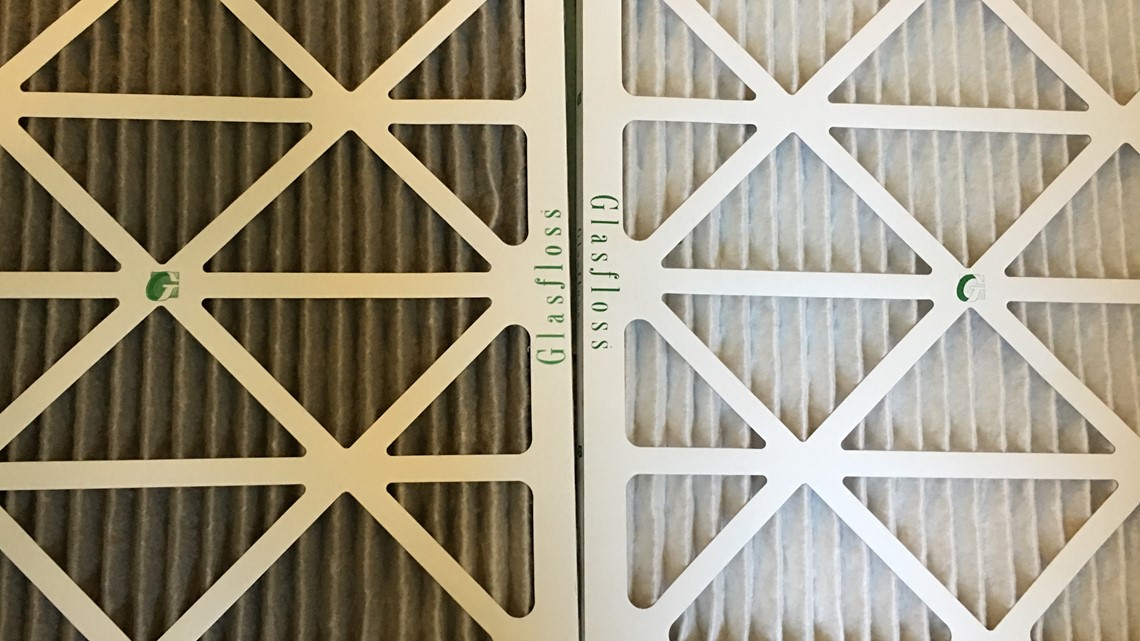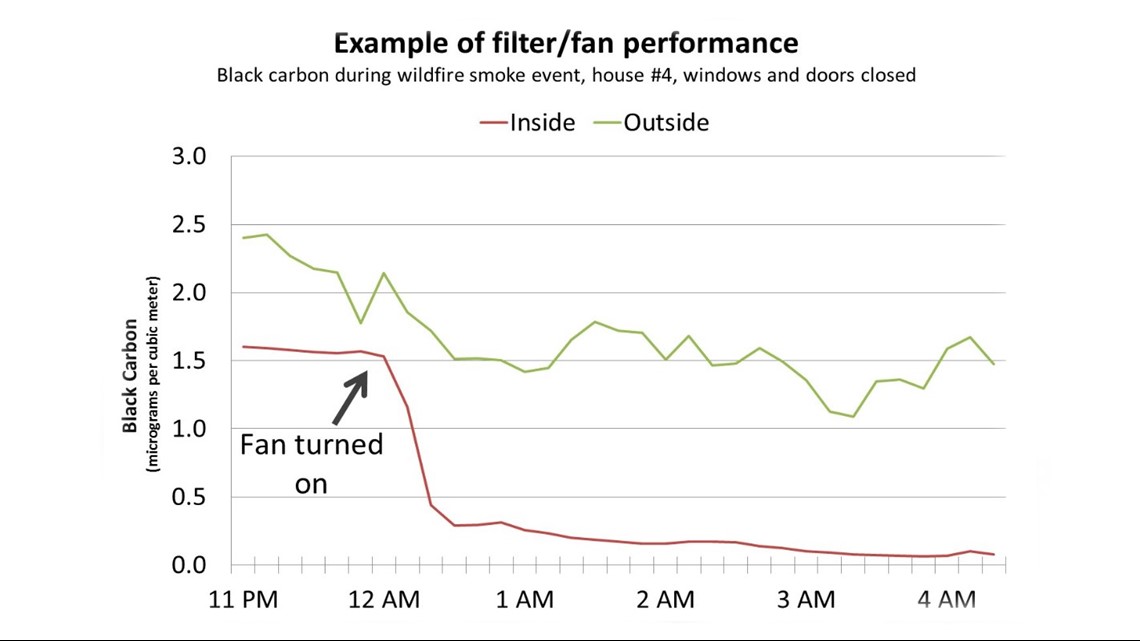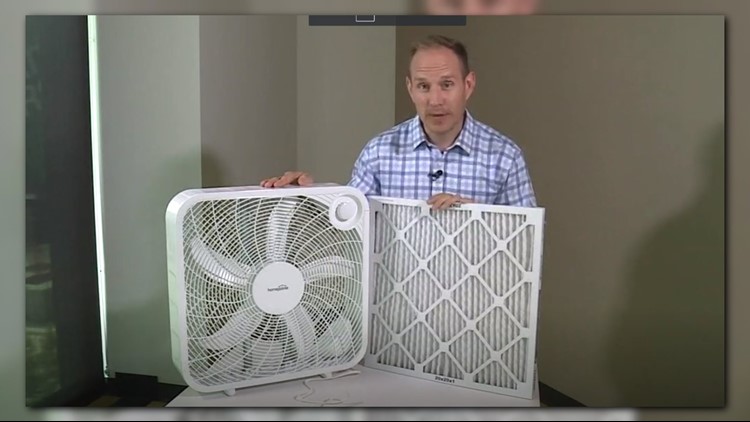Wildfire smoke is full of small particles that can get into your eyes and lungs causing health problems including chest pain, headaches, or an irregular heartbeat.
Colorado's air quality has been fluctuating from moderate to unhealthy today due to thick smoke from wildfires, which is also reducing visibility across the Front Range.
Our sister station in Seattle, which is also being affected by the wildfire smoke, asked the Washington Department of Health how to stay healthy during poor air quality situations. The department encourages people to stay inside and away from pollution when air quality levels become unhealthy. Keeping your windows and doors closed and using an indoor high-efficiency HEPA filter can help keep indoor air as clean as possible.
High-end filters can be expensive for people who don't already have one in their home, but one can be made for a fraction of the cost in just a few easy steps.
To make one, start by buying a MERV 13 or FPR 10 furnace filter and tape it to the back of a box fan. The filters sell for about $15. The suction from the fan should also make the filter stick to the back.
“The tape is just helpful to keep it tidy so when you shut off your fan the filter doesn’t just flop off,” said Erik Saganic, air resources specialist for Puget Sound Clean Air Agency.


Saganic said it’s OK to have gaps around the filter and it doesn’t need to be a perfect seal.
Last year the Puget Sound Clean Air Agency put one of the homemade filters in a 14’ by 14’ room with all the windows and doors closed. The filter dramatically decreased the amount of black carbon in the room within 30 minutes. The agency says the filter can give you a 90 percent improvement in fine particles.


Air filters should be used in your bedroom or in the room where you spend the most of your time.



